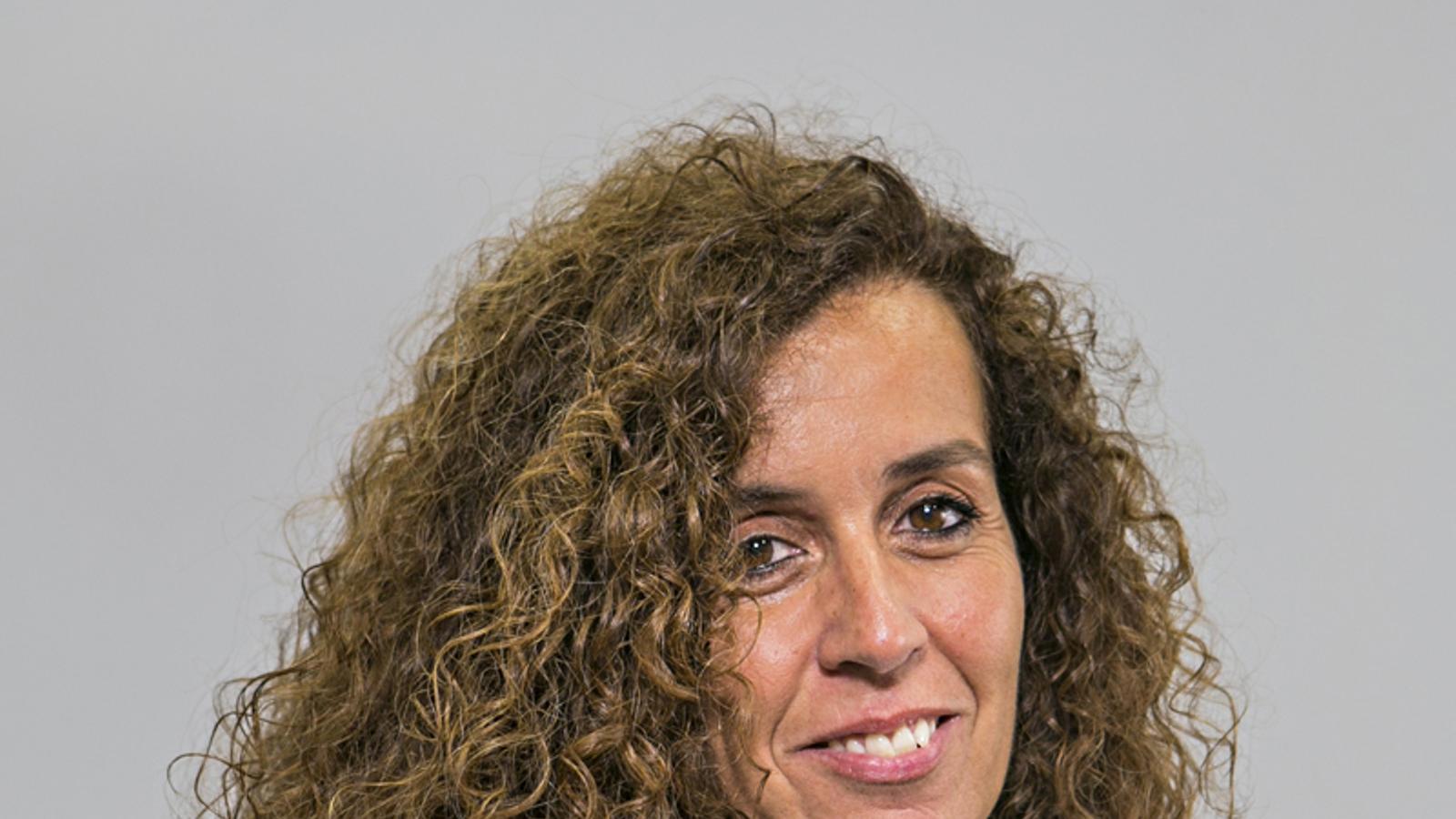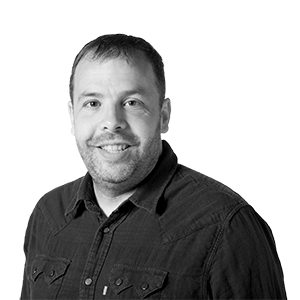Sílvia Sivera: "Assessment should not only certify the knowledge acquired"
Director of the UOC's eLinC


BarcelonaSilvia Sivera, a professor at the Faculty of Information and Communication Sciences who currently directs the UOC's eLearning Innovation Center (eLinC), analyzes the future challenges facing education. Her mission is to promote pedagogical innovation in online learning by using data obtained within the institution itself to benefit innovation and contribute to improving the quality of teaching.
You come from the world of advertising, right?
— Yes, I'd always worked as a creative in advertising agencies, and a friend told me the UOC was looking for professors to design creativity courses and that she'd seen me. I went to the interview out of curiosity and, honestly, I fell in love; it seemed like a fantastic challenge. I thought of it as a four-year break from my professional life, but it dragged on. I had the feeling from day one that anything was possible at the UOC, that everyone was doing the impossible to transform higher education and support students in their learning process.
When online learning began, it was already a very disruptive proposition. How has it changed and adapted over time?
— I believe that the educational model, in fact, is the key element that has made us unique. The use of technology to make higher education accessible to everyone, anywhere, at any time. This educational model has become an international benchmark. The UOC shifted its focus and placed the student at the center. Students are not alone; they are accompanied by key figures who guide their learning. They are provided with the learning resources they need. Our in-house materials created by specialists have great pedagogical value. Students should be able to pursue their studies from wherever and whenever they want. Technology allows us to have varied learning models and evolve toward fully digital assessment. The model is transforming into a dynamic educational ecosystem. The latest version is the result of the Insignia project. Innovation is part of our DNA, and what this educational innovation project does is help it evolve and give it meaning. The student is the central protagonist, but no longer just inside the classroom, but also outside. This lifelong support model has four main areas of service that support students from the moment they identify a learning need until they complete their studies and seek professional advancement. We help them develop self-knowledge and provide tools and up-to-date information so that each student can identify their competency traits and strengths. We have a professional GPS that allows us to identify the competencies the market demands for each job. This self-knowledge process allows us to better customize each training path. That's why we've organized continuing education with microcredentials that are highly relevant to market demands.
What is eLinC?
— The eLearning Innovation Center is the UOC's innovation hub. We promote the continued evolution of the educational model and its response to the needs of today's changing world. We seek teaching innovation and encourage faculty to experiment with new tools. Another key focus is facilitating learning analytics so faculty can make academic decisions based on evidence and concrete data.
Today's students are nothing like those of years ago. How does the model adapt to this social change?
— Society isn't the same, but neither is technology. The UOC student profile has always included family or work responsibilities, but for many, we're already the first choice after the university entrance exams. We're also the second university in Spain with the most students with disabilities, thanks to the convenience of the online model and a learning environment designed to address accessibility. I'm particularly interested not only in how they enter, but also how they leave. These people emerge as highly digitally competent, which is highly valued in the labor market. They know how to manage their time very well because they do many things, and above all, they're also very resilient. Our studies take longer than at other universities because most of our students don't have a full-time job. We have a very specific profile. The key is also to listen to them. Monitoring through data analytics is essential. There's no need to ask them everything because we already see their behavior.
What future challenges does the educational model face?
— Artificial intelligence poses a key challenge for both the education system and businesses. It forces us to rethink training objectives and the skills needed in this context. What do we teach and how do we teach it? Beyond AI, the challenge of integrating technology associated with new tools is also important. It's necessary to know whether a new technology serves to improve the learning process or is purely artificial. We must coordinate to improve the learning experience in a comprehensive, coherent, and highly enriching way. Assessment should not only certify the knowledge acquired but should also guide students toward continuous improvement. We have abundant data, and there's no need to wait until the end of the semester to assess the subjects and make the appropriate improvements or corrections. This also allows us to personalize learning.
Previously, training and the world of work were too far apart.
— There are many initiatives to prevent this. Taking into account the needs of the labor market is the first step. In addition to the Professional GPS, we have other tools, such as the Jobs and Skills Barometer. We're considering everything from microcredentials to industrial doctorates, where students can pursue their doctorate within the same company where they work. It's a very interesting opportunity that strengthens the connection between the university and business. The UOC Skill Labs and OpenEU also emphasize this approach.
What added value do master's and postgraduate degrees have?
— Master's and postgraduate degrees ensure solid specialization and up-to-date knowledge. An official university master's degree complements undergraduate studies with a dual focus: occupational specialization and research. Research-oriented degrees provide access to doctoral studies. Specialized postgraduate degrees provide up-to-date knowledge and allow for lifelong professional and personal development because they allow you to acquire skills and practices that can be applied immediately. They also serve to networking both with other students and with the teaching staff and with the network of contacts and knowledge.
If you look up and think about the future, where do you think education will evolve?
— I don't have a crystal ball. I like to be very cautious, but it's increasingly difficult to find a purely in-person model. We're going to maintain our model, but there are moments of synchronicity that are justified and necessary and that add value. There won't be in-person classes, but the concept of presence is important. Online learning will become very global, and therefore, partnerships will play a fundamental role.
In this global learning, where does Catalan stand?
— We guarantee official online university education in Catalan. We have a very ambitious language plan, with fifty initiatives that aim to lay the foundations for a policy of multilingual and pluricultural coexistence at the university, but at the same time we are committed to Catalan as both our own and working language. We work with technology providers to ensure that Catalan is included in the services we offer. We protect it as it should be.
What role does creativity play in the learning process?
— It's a skill the job market demands. Problem-solving, creative thinking, and critical thinking are essential soft skills. Creativity is a muscle that needs to be trained. Many programs offer creativity courses, but the culture of innovation must be visible throughout the organization. All departments must have this innovative DNA.
